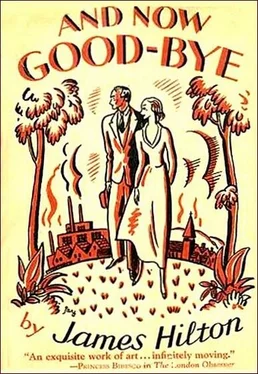“You weren’t afraid years ago.”
“Oh, heavens, no. I was keen enough till—oh, till I realised it wasn’t much use being keen. When I was in my teens and early twenties I used to scribble down tunes nearly every night. My parents died when I was young, and I went to live with a rather fine old dissenting preacher in a small Kentish village. There was a family of seven daughters. I remember some of them used to sing—the usual kind of songs people did sing in those days—and I sometimes tried to teach them things of my own, but it was never much of a success. I’m sure the fault was chiefly mine—they were probably written in impossible keys. It was the youngest girl, by the way, who afterwards became my wife.”
“Were you very much in love with her?”
The question, so artless and direct, took him by surprise, so far as anything, in the mood he was in, could have done so; he reflected for a second and then evaded with: “Don’t you think people who marry are usually in love at the time?”
“At the time? Do you mean only that?”
He felt her keen, eager mind in sharp contact with his own; it was exciting and a little uncanny, the way she could open up long avenues of speculation, not so much by her questions as by the questions that her questions suggested. He did not know what to say in answer, but the taxi rescued him from the problem by drawing in and halting at the kerbside. He paid the driver and then, as the cab drove away, stared around with a renewed sense of strangeness; there they were, the two of them, marooned at that rather forlorn hour of the morning amidst a waste of empty pavements and tall unlit houses. “This way,” she said, leading him into a narrow side turning that appeared to expand further on into a sort of enclosed yard. “These used to be stables belonging to those big houses, but now they’re mostly garages. My friends are lucky because the garage they live over belongs to a man who spends half the year abroad. They’re really quite comfortable places to live in. This way. I suppose as it’s so late I’d better use the key.”
She took a Yale key from her bag and unlocked a door that gave directly on to the yard. A dark interior was revealed, and a second later, when she had switched on the light, a small lobby with a flight of stairs ascending to a first floor. “We’ll go up,” she said, “they’re probably in the studio.” She climbed the stairs, with Howat following her. All this seemed to be happening, so far as he was aware, in a curious dream, a dream in which the most fantastic things followed one another with a kind of preposterous reasonableness. At the top of the stairs was a landing with several closed doors; she opened one of them, switched on a light, and gazed around. The room was empty, but it bore signs of having been fairly recently inhabited. Used glasses stood on a Sheraton sideboard, and there was a cabinet gramophone with a record still on the turntable. It was a rather cosily furnished room, in which one window had evidently been enlarged to give a good north light. There were several bookcases, a baby grand piano, and an easel supporting a half finished and not very attractive portrait of a ballet- dancer.
“They don’t seem here,” she said, and then caught sight of a letter on the mantelpiece addressed, in a very conspicuous scribble, to herself. She tore open the envelope and a few seconds later exclaimed: “They’ve gone away for the week-end—some friends called and invited them suddenly.” She handed Howat the note; it was signed ‘Finola’, and in the course of a few dozen roughly pencilled words conveyed an explanation, an apology, good wishes for the future, a hope that she would be sure to come again when next she was in London, and a command for her to make herself thoroughly comfortable during that last night at the studio. “That’s Finola,” she added, and pointed to a portrait on the wall of a pale thin-lipped woman with prominent cheek bones and a necklace of large green beads. “She painted that of herself, but it doesn’t flatter. I’m sorry you couldn’t have met her—and her husband. But its really just like them to go rushing off in such a hurry.”
“I’m sorry, too. I like their room. It’s got a sort of genial untidiness about it.”
“They’re like that themselves—genial and untidy. I’m very fond of them both, though I’ve only known them for a few days. It’s queer how a room can sometimes make you feel at home, isn’t it?”
“Yes, this one does, I admit. It’s the casualness of it—everything just comfortably anyhow.”
“They are casual—the way they just go off at a moment’s notice like this, for instance. Somehow I don’t feel it’s at all impolite of them.”
“No, it’s almost a charming characteristic. This room makes me wish my own wasn’t so stiff and formal. But I’m afraid that’s in the hands of my sister-in-law. She has the strictest ideas about tidying up. I can just imagine how shocked she’d be by a place like this.”
“Yes, I know. I met her once. I found her just a bit terrifying.”
“She’s very good-hearted, of course. I don’t know what my wife would do without her, with all that great house to look after.”
“Why don’t you move into a smaller house?”
“I think that’s what I would do if I had my own way.”
“I’m sure you’d be happier.”
“Yes…Those enormous houses were part of a different social system altogether. I’d be just as comfortable and certainly much better off living over a garage. After all, what does it matter where you live?”
“Provided you’re happy in what you’re doing…I like that picture over there, don’t you? They picked it up at a sale the other day—they’re always picking things up. That’s why the place is in such a glorious muddle. I don’t believe they ever ‘furnished’, as people say. I imagine they just began with an almost empty room and let things accumulate.”
“Not a bad way. Better than going to a shop and buying vanloads of standardised stuff all at once.”
She was leaning against the mantelpiece with her heels on the fender-rail when suddenly she slipped and caused a little clatter of fire-irons. The noise awoke him from the almost trance-like gossip in which he had been taking part; it was as if both of them, more or less unconsciously, had been talking hard to obscure the fact that they were alone in someone else’s studio at half- past one in the morning, and would soon be saying good-bye, never to meet again.
He looked at his watch. “Really, I ought to go. It’s very late.”
“Yes, I suppose it is…Oh, you haven’t seen that photograph of Isaac. It’s in their other room—I’ll get it for you.”
She rushed away and reappeared a few seconds later with a cabinet-sized photograph of a rather fleshy, genial-looking man, obviously a Jew, with a high domed forehead and deep-set eyes that more than made up for coarse features in the lower part of the face. Howat studied it closely and with a certain willingness to be impressed. “Yes, he’s an interesting-looking man,” he said at length.
She was standing near him, gazing over his arm at the photograph. “He—he’s a musician,” she responded, with a sudden stammer in her voice.
I know—I can believe ii. He felt a warm spring of sympathy rising in him, and beyond it, a tinge of whimsical envy; the girl, he realised, was fond of this man in a way which it was not given to many men to experience; and he had a vague sensation of desire, of desire to share the rays of such eager, comradely affection. He felt, amidst the flurry of that desire—I wish she were my daughter; and then he thought of his own daughter, cramming away at her text-books, and rejecting all in life that did not assist in her melancholy progress from matriculation to ‘inter’ and from ‘inter’ to ‘final’; he thought, dispassionately: Mary’s a rather unattractive girl, she’ll probably never marry, it’s just as well she is keen on degrees and things. Yet why, be reflected, was there such a tremendous difference, between his own daughter’s ambitions and this girl’s musical career in Vienna, between his daughter’s Latin verbs and the German lessons he had given to Elizabeth Garland? He felt that there was a difference, absolutely and in kind; but why? The answer eluded him, and was lost, anyhow, in a renewal of desire as he laid the photograph on the table and began buttoning his overcoat. Oh, I wish she were my daughter, he kept thinking, and as he saw her clear unswerving eyes still fixed on the photograph, he thought further: There’s something in you that means all that I’ve been meaning, all those ideas I’ve been trying to spread, everything I’ve been groping for in a blind way for years…
Читать дальше











